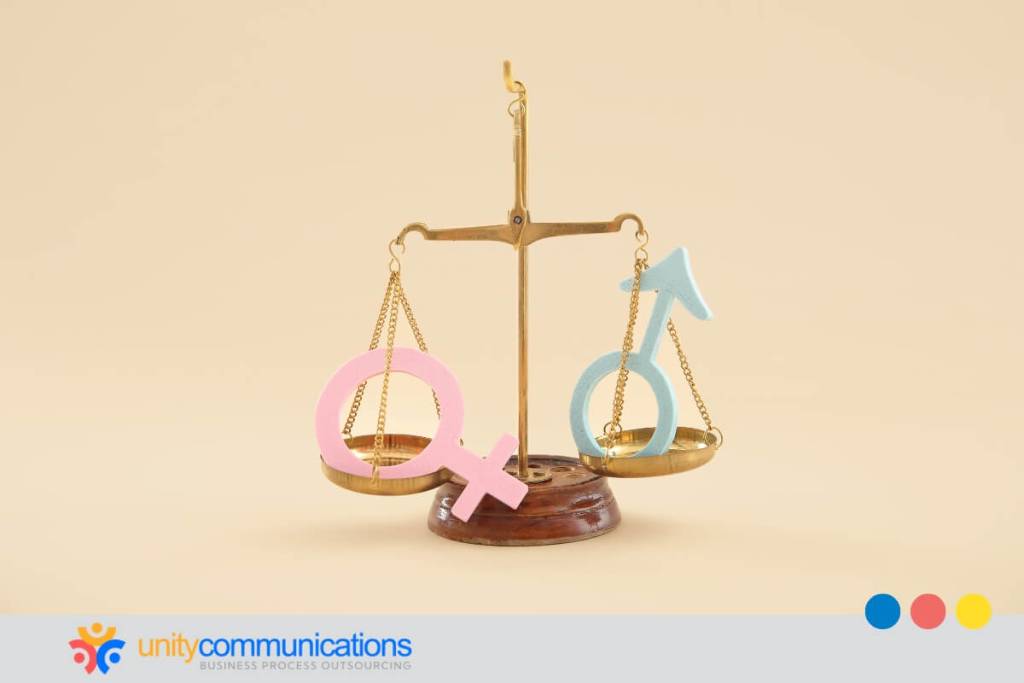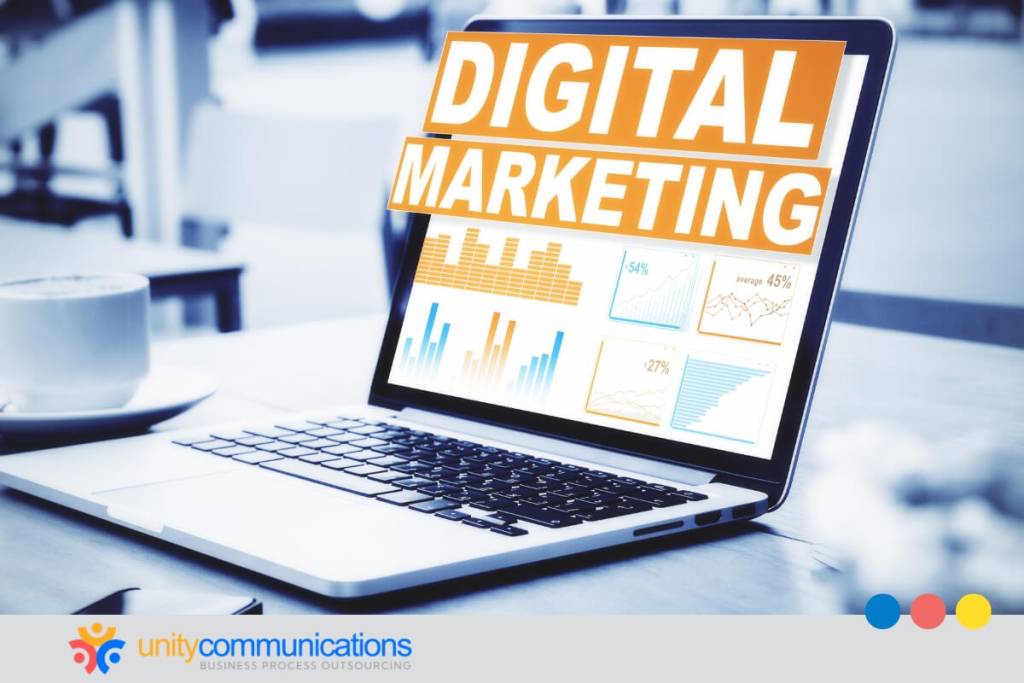IN THIS ARTICLE
Table of Contents
The business process outsourcing (BPO) industry encounters the same challenges in enforcing gender equality as any other sector. BPO companies might even deal with this issue more because talent acquisition and employee retention are fundamental to their services.
However, it does not necessarily mean that BPO firms have a perfect grasp of gender equality. The cultural, social, and political environment that shapes BPO and gender equality laws has changed significantly over the years, bringing more nuance and issues for leaders to address.
This article explores the meaning of gender equality in the BPO industry and how to achieve it.
A history of workplace gender equality

Comparing what BPO is today to its roots in the 19th century, the industry seems to have undergone a drastic shift, expanding its services from purely manufacturing roles to specialized and knowledge-based functions. Likewise, labor codes have evolved to better represent the rights of women and LGBTQ+ individuals in the workplace.
For instance, the Equal Pay Act of 1963 formalized efforts to address the wage gap between men and women. According to the U.S. Census Bureau’s 2023 report on income, the ratio of full-time, year-round earnings reached .84 as of 2022. Title VII of the Civil Rights Act of 1964 also prevents employee discrimination based on sexual orientation and gender.
However, achieving gender equality in any workplace also rests on changing civil society. Protecting job security for new mothers and encouraging new fathers to be more present at home lets women progress in their careers and promotes work-life balance for men.
Legislation is continuously changing to address gaps and further support for workers. California, Washington, and Illinois have made individual strides to push for diversity in boards for public companies to varying degrees of success. The process has been tricky but steady nonetheless.
Modern BPO and gender equality laws
Leaders in the global economy have made significant strides to treat men and women equally, with BPO companies playing a major role in some cases. The Philippines, a global center for offshore BPO operations, has and continues to empower women in the workplace nationwide.
Equal opportunity enables BPO providers to deliver high-quality business outcomes. Since hiring managers want to acquire top talent, they must eliminate biases that prevent the most qualified people from filling job openings. Thus, diversity is necessary to improve BPO opportunities further.
Corporate involvement in gender equality goes beyond providing equal opportunities and equal pay. BPO hubs have made steady progress in gender equality laws, and providers maintain equality in their practices to ensure compliance.
Regional differences in gender equality laws
It is important to note that, as mentioned above, laws and cultural expectations vary greatly depending on the outsourcing hub. That means grassroots efforts toward achieving gender equality are uneven, and what applies in one place does not apply to another. Parental leaves are an excellent example of this, as seen below:
- The U.S. Family and Medical Leave Act (FMLA) makes unpaid paternal and maternal leaves mandatory on a federal level but is subject to eligibility. Few states have laws to make benefits mandatory, restricting options for new parents, especially mothers.
- In Canada, parental leaves are mandatory under federal law and include benefits from the Employment Insurance (EI) program, independent of what employers give. Parents also have more agency in splitting duties without seriously affecting joint income.
- Mexican federal law provides employees access to paid parental leave at 100% of their salary. Women receive 12 weeks of paid leave covered by the Mexican Social Security System (IMSS). Men, on the other hand, receive five days of leave paid by their employer.
- As of 2019, the Philippines expanded paid maternity leaves (covered by social security) to 105 days through Republic Act (RA) 11210, seven of which are transferable to the father. Men also receive a week of paid paternity leave, paid by their employer under RA 8187.
How gender equality uplifts BPO companies

Providing equal opportunities for all employees, regardless of sex and gender, is a net positive because it allows BPO organizations to attract and retain highly skilled workers. BPO trends like remote work allow new parents, especially mothers, to continue contributing from their homes.
Achieving gender equality in the workplace lets BPO firms fully leverage their employees’ abilities. For instance, customer service representatives must be highly empathetic, and the idea that women are better for the job disqualifies men who could perform just as well.
Fostering a more inclusive environment also makes employees feel more valued by their employer, which increases morale, efficiency, and loyalty. These factors result in favorable business outcomes for employers, allowing them to retain talent and optimize their workforce, particularly women starting families.
According to Gusto, childcare disruptions resulted in more women (4.1%) quitting than men (3.4%) in January 2022. In states where disruptions were highest, the disparity is as large as 1.7%, but no such gender quit gap existed in states where childcare disruptions were lowest.
Compliance measures within the BPO industry
Complying with BPO and gender equality laws is a company-wide effort, but human resources (HR) is responsible for leading and enforcing inclusivity and diversity efforts. This is often done through training and awareness programs and supplemented by periodic audits.
Common examples of what HR should do to promote equality within a BPO company include:
- Encourage an open-minded work environment towards gender equality and diversity.
- Create training modules to ensure all employees observe proper conduct in the office.
- Review policies to enforce equal pay regardless of gender and full pay transparency.
- Hire an inclusion, diversity, and equity (IDE) expert to oversee and lead efforts.
- Ensure all employees have equal opportunities, especially for mentorship programs.
- Eliminate all gender and sex-based biases in the workplace (e.g., harassment cases).
- Promote work-life balance for all employees to help eliminate gender role stereotypes.
The bottom line

BPO companies rely on a diverse workforce to provide their services to clients, which means they must comply with specific IDE regulations and recognize and uplift the unique situations of each individual. For instance, new fathers in the U.S. are often not encouraged to assist in household and childcare duties.
Even new mothers must meet strict guidelines to become eligible for unpaid maternity leaves, putting new parents in a tough situation. Providing maternity and paternity leave benefits allows employees to share childrearing responsibilities without fear of losing income or employment.
Let’s connect and discuss how your organization can design and execute an effective IDE plan to promote gender equality.





